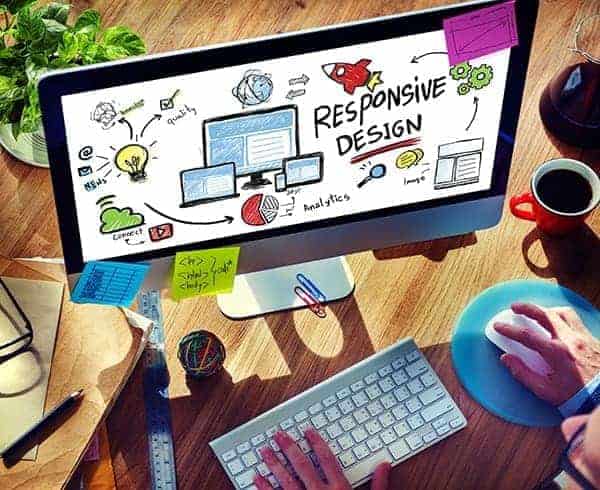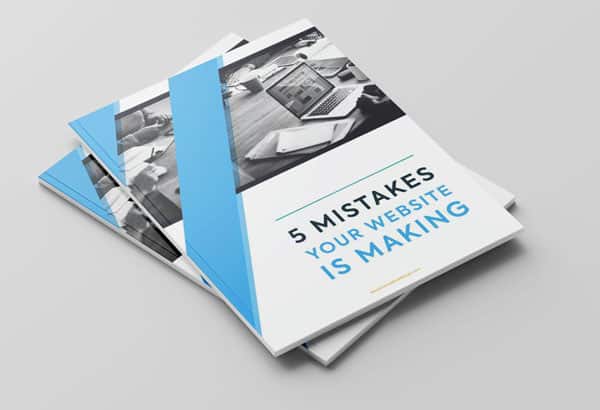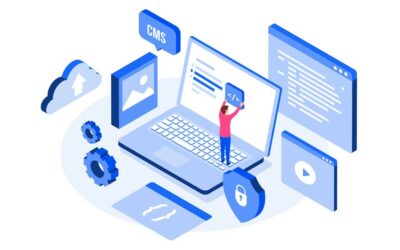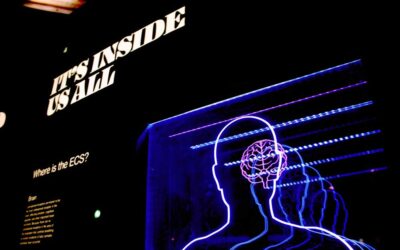Entrepreneurs are amazing people. They are creative and at the same time, analytical. It only takes a moment’s inspiration to trigger an idea. Entrepreneurs know they have to capture the idea and transpose it from a visual on a sketchpad into a website design that best represents the concept through the medium of the Internet. From there, the visual should have the capability to seamlessly manifest in mobile devices such as smartphones and tablets. But as creative as entrepreneurs are, they need the help of a professional web designer to turn that visual into a fully functional, aesthetic website.
It’s easy to find web designers. A simple search on the Internet will yield links to several agencies and freelancers offering website design services. You can sign up with various online job platforms and send invites to select freelance web designers or post details on your project. You can connect with web designers in social media networks such as LinkedIn or ask referrals from your contacts in Facebook.
The real challenge is to find a professional web designer who can do the right job for you.
If you came up with a shortlist of 5 web designers, all of them may have similar experiences, technical and fundamental competencies but not everyone may build your website according to what you want. They may not even capture your vision. There are intangibles you need to look out for when qualifying your right- fit web designer.
Here the top 10 qualities you should look for in a professional web designer:
1. Empathy
When you start collaborating with a web designer, the objective is to create a website that will attract your target market. It may seem superficial but studies have shown that the initial perception of your website will be based on how it looks.
- Designs with the user in mind – A professional web designer will not design for himself but with a specific audience in mind. Customized design will require extensive research work.
In addition to the information you provide, a professional web designer will undertake further studies to learn the online behavioral traits of specific demographics.
His objective is to develop a keen understanding of your audience. He wants to get to know them better, so he will know the best approach in designing your website.
- Navigability – In his book “Don’t Make Me Think” Steve Krug revealed that the greater the effort a user extends in navigating the site, the less memorable the experience. A good web designer understands the importance of User Experience or UX in web design. Poor UX will result in lower search rankings.
- Functionality – Nothing is more frustrating for a user than a website that does not load fast or have malfunctioning buttons. These inconveniences can have disastrous consequences for the website.
A professional web designer will view the design of your website from the perspective of the end user. It must conform to his or her needs, wants and expectations. When users enter your website they know they are in the right place. They will want to explore further and not click out.
2. Analytical
Like the entrepreneur, a good website designer balances empathy with precision through the use of data. If empathy focuses on the image, analytics will build the substance of your website.
- Designs with SEO in mind – Search Engine Optimization or SEO functions to have your website found on the Internet.
It does this by optimizing your web pages with the precise ratio of keywords so that the search engine robots won’t have a hard time finding your content and getting it indexed. Keywords may be used in descriptive, title and meta tags to fast track the search process.
- Purposeful Content – Keywords can only go as far as drawing attention to content. The harder challenge is maintaining the user’s interest which is largely dependent on your content’s relevance, usability and uniqueness.
For example, what the user sees and reads during the first 10 seconds on the Home Page will determine whether he or she will further explore your website. Composition of web copy; its images and text, is very important to capture interest of the user.
- Strategic Use of Design Elements – The loading time of your web page can be affected by design elements such as color, use of animation, the use of forms and status messages. A slow loading website can have serious implications on its ability to generate patronage and revenues. A website designer will frequently run tests to make sure speed and functionality will not be compromised by the elements of design.
3. Trustworthiness
Trust is a value that you earn over time. But when working with people, oftentimes you can depend on intuition to tell you if someone is trustworthy or not.
When you are collaborating with a web designer, you are entrusting your vision and ultimately your business with that person. If you don’t feel comfortable working with the web designer, chances are the arrangement will not turn out well.
What are the warning signs?
- If there’s a lot of resistance on your ideas.
- The web designer is habitually absent or late for meetings.
- The web designer is behind the development schedule.
- He or she can be rude and sometimes makes crass comments.
- He or she is more worried about not getting paid on time than getting the project done on time.
These types of incidents are potential red flags. Disagreements are part of collaboration. But if you are frequently clashing heads, not only will you fall behind the launch date but you may not end up with the website you want.
4. Passion
You can tell if a person has passion for what he does. There’s an unmistakable energy and enthusiasm in how he approaches work because he loves his job. For him, web design is not just a means of livelihood. It’s an opportunity to help clients meet their business objectives.
During meetings, he is candid and open about his opinions and observations. His intent is to give you the best website for your hard- earned money. He cares about your project and actively offers solutions.
On the other hand, a web designer who only does it for the money is hardly expressive or involved. All he wants to do is carry out your instructions lock, stock and barrel without giving much of an opinion. In his mind, the sooner he gets the job done, the earlier he gets paid.
5. Good Listener
A professional web designer will always acknowledge the client as the expert in what he or she does. He understands that his role is to turn the client’s vision into a collection of web pages and multimedia content by using his knowledge on website design.
If he wants to have a better idea on how to interpret the client’s vision, he should be a good listener. Allow the client to express his or her ideas as openly and candidly as possible. This is the best way to develop an understanding of the client’s vision and branding strategy.
6. Effective Communicator
Communication is often described as a two- way street. When collaborating with your web designer, you must constantly bounce ideas off one another. Creating a feedback loop between you and web designer opens up the chain of communication and reduces the probability of making mistakes.
A web designer who is also an effective communicator knows how to relay opposing viewpoints without discouraging or embarrassing the client. He prefers to have regular scheduled meetings in order to have the proper forum to discuss concerns, updates and other issues.
7. Understands the Value of White Spaces
White Spaces are also called “negative space”. A professional web designer knows how to utilize white spaces and turn something empty into sophisticated elegance that remains simple yet understated.
There are many benefits to using white spaces:
- Attracts attention to a certain visual
- Improves readability
- Highlights orientation of the page
- Clears out distractions on the page
- Gives the page a cleaner look
For the best web designers, white isn’t an empty color. They know how to use it to breathe more life into the web page.
8. Solutions- Based
Several things can go wrong when building a website. The page may not load fast enough, it may not set up properly in a smartphone or design issues may leave you and the designer stumped.
A good website designer does not merely settle for alternatives. He looks for solutions and exhausts all possibilities even before considering other options.
9. Meticulous
The saying “the devil is in the details” rings loud and true in website design.
There are many key areas of responsibility to oversee when building websites. A website designer who is not meticulous in his work process might overlook details that may lead to costly mistakes.
A website designer should be able to look into the details against the overall backdrop of the concept. The question he must constantly ask himself is, “How does this element or feature fit in?” Tests are frequently run to make sure the website is not only aesthetically pleasing but highly functional and usable.
10. Proactive
They might have the experience, skills and necessary proficiencies, but the best website designers know their limitations. They could be stuck with a programming or design issue but instead of wasting time trying to figure it out by themselves, they will reach out to people who can help them.
Of course, the web designer will inform you of the situation and how he plans to resolve it. This way you can keep track of the development schedule and know everything that is happening with your website.
How Do You Know You Have the Right Web Designer?
If you have not worked with a professional web designer before, you might place too much emphasis on technical qualifications and work experience. This is perfectly fine but do not overlook personality, attitude and other key behavioral traits.
Take the time to get to know your website designer better. Invite the candidate to an interview and ask the following questions:
- Why did he or she decide to become a web designer?
- What are the web designer’s goals, objectives and motivators?
- What was the web designer’s biggest challenge and how did he or she overcome it?
- How does the web designer feel about closely collaborating with the client?
- How does he or she define “professionalism”?
- What does he or she consider important qualities of a professional web designer?
The reality is, you will only know if you’ve found the right web designer once you start working together. Like all relationships, it is normal to hit rough patches every now and then but these differences should be resolved right away.
If it’s not working out and all efforts to move forward have fallen on the wayside, do not hesitate to terminate the arrangement and find another web designer.
Did you like what you just read? Please share your thoughts and opinions. I would love to hear from you. And if you’re interested in having your own website, feel free to give me a call or send an e-mail.
We might just be the professional web designer group you are looking for!







